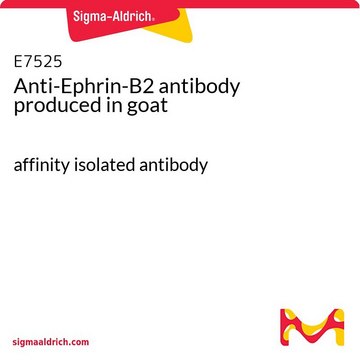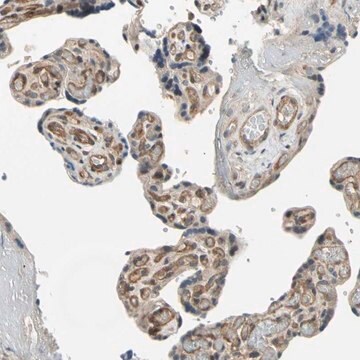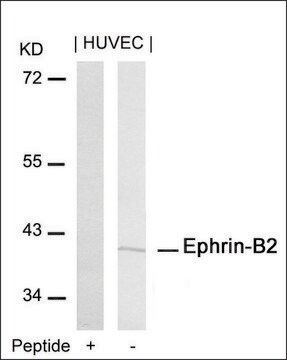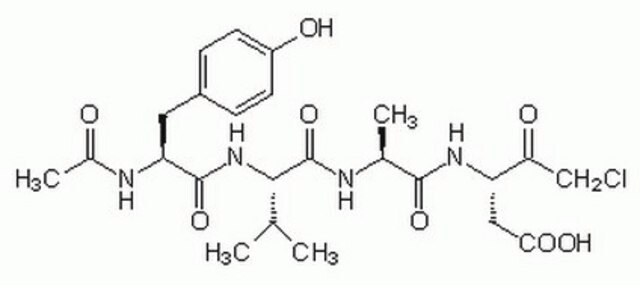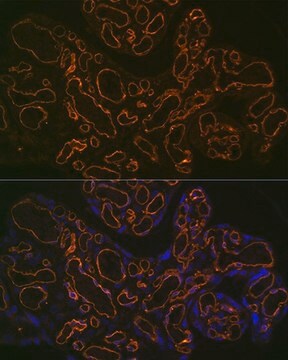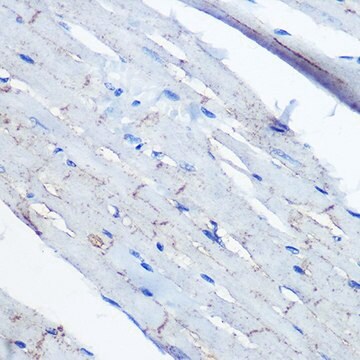SAB4300456
Anti-EFNB2 (Ab-330) antibody produced in rabbit
affinity isolated antibody
Synonym(s):
Anti-EPLG5 antibody produced in rabbit, Anti-HTKL antibody produced in rabbit, Anti-Htk-L antibody produced in rabbit, Anti-LERK5 antibody produced in rabbit, Anti-ephrin-B2 antibody produced in rabbit
About This Item
Recommended Products
biological source
rabbit
conjugate
unconjugated
antibody form
affinity isolated antibody
antibody product type
primary antibodies
clone
polyclonal
form
buffered aqueous solution
mol wt
~37 kDa
species reactivity
rat, mouse, human
concentration
1 mg/mL
technique(s)
indirect immunofluorescence: 1:100-1:200
western blot: 1:500-1:1000
isotype
IgG
immunogen sequence
(N-I-Y-Y-K)
NCBI accession no.
UniProt accession no.
shipped in
wet ice
storage temp.
−20°C
target post-translational modification
unmodified
Gene Information
human ... EFNB2(1948)
General description
Immunogen
Biochem/physiol Actions
Features and Benefits
Target description
Physical form
Disclaimer
Not finding the right product?
Try our Product Selector Tool.
Storage Class Code
10 - Combustible liquids
WGK
WGK 1
Flash Point(F)
Not applicable
Flash Point(C)
Not applicable
Choose from one of the most recent versions:
Certificates of Analysis (COA)
Don't see the Right Version?
If you require a particular version, you can look up a specific certificate by the Lot or Batch number.
Already Own This Product?
Find documentation for the products that you have recently purchased in the Document Library.
Our team of scientists has experience in all areas of research including Life Science, Material Science, Chemical Synthesis, Chromatography, Analytical and many others.
Contact Technical Service